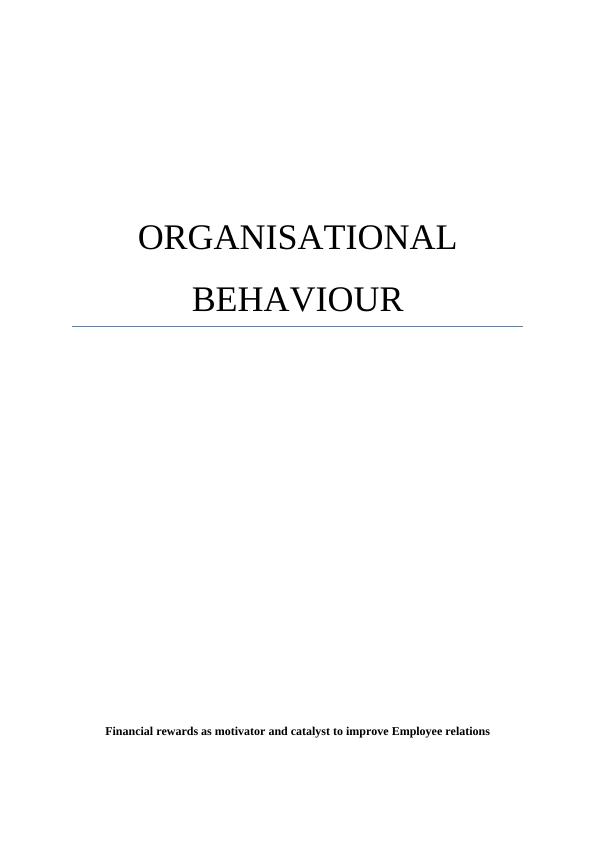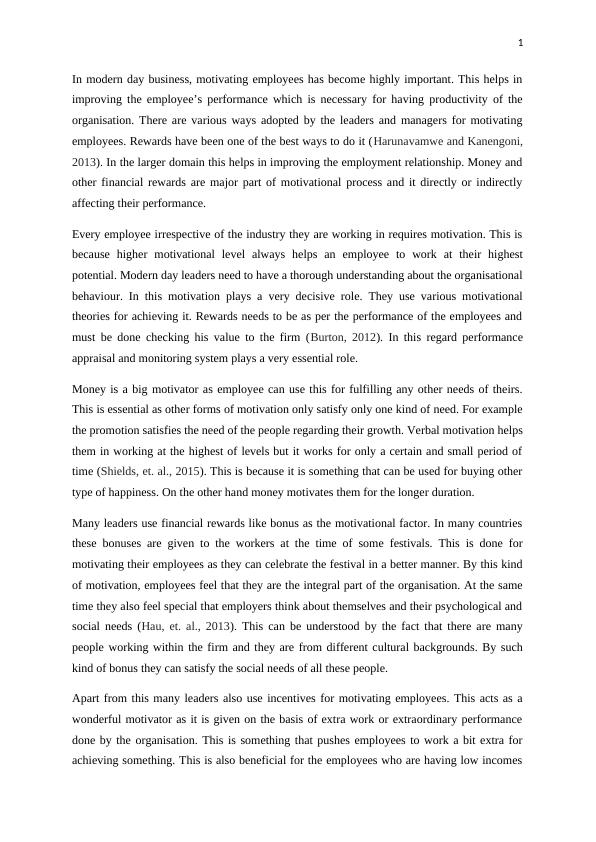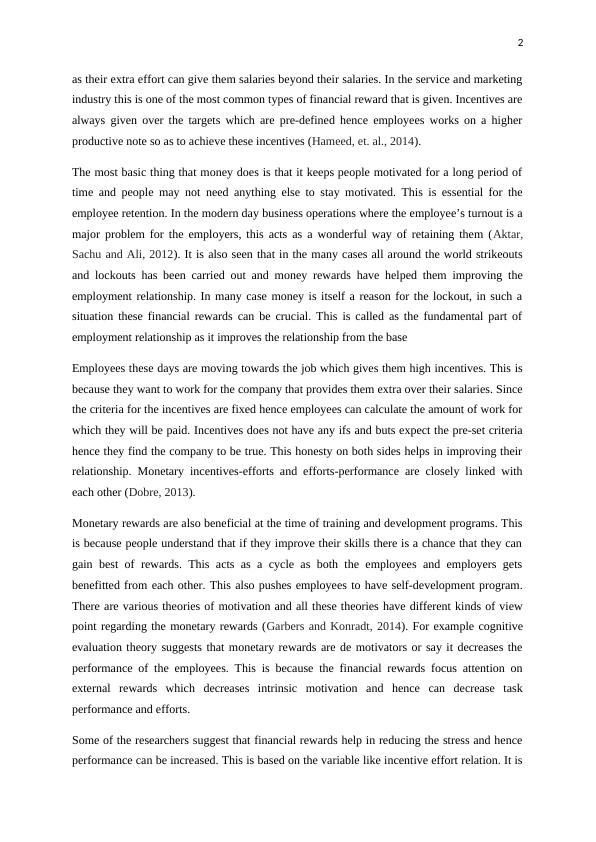Financial Rewards as Motivator and Catalyst to Improve Employee Relations
Develop an arguable proposition on which to write an essay on Organisational Behaviour. Use at least six peer-reviewed journals as sources and adhere to the Harvard referencing system.
7 Pages2139 Words60 Views
Added on 2023-06-09
About This Document
This article discusses the use of financial rewards as a motivator to improve employee relations and performance. It explores the advantages and disadvantages of using monetary incentives, and how they can be used to encourage self-development and training. The article also looks at different motivational theories and their views on financial rewards.
Financial Rewards as Motivator and Catalyst to Improve Employee Relations
Develop an arguable proposition on which to write an essay on Organisational Behaviour. Use at least six peer-reviewed journals as sources and adhere to the Harvard referencing system.
Added on 2023-06-09
ShareRelated Documents
End of preview
Want to access all the pages? Upload your documents or become a member.
Role of Motivation in Organisational Behaviour
|6
|1733
|239
Understanding Why People Work: Factors Affecting Employee Motivation and Strategies to Cope Up with Negative Factors
|8
|2152
|64
Role of Monetary Rewards in Building Relationship with Employees and Motivating Them
|7
|2167
|89
Pros and Cons of Employee Motivation through Monetary Rewards
|8
|2265
|41
Financial Rewards and Incentives in Organizational Behavior
|7
|2095
|302
Organizational Behavior Management Essay 2022
|8
|2115
|14



